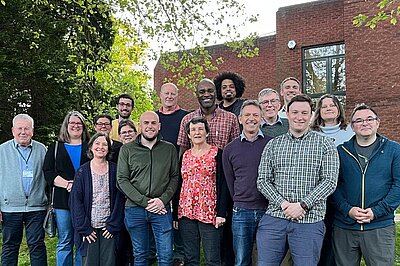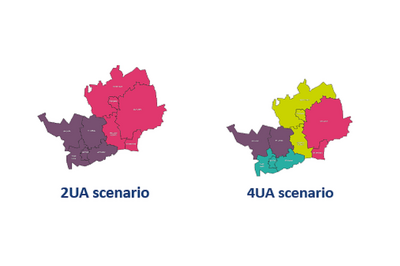North Herts District Council backs two unitary model as best deal for residents
North Herts District Council has backed a two unitary model for Hertfordshire, arguing it is the option that offers clear accountability, financial stability and better protection for local services and avoids what the Liberal Democrats described as “bureaucracy by multiplication”.
At last night’s Extraordinary Council meeting on local government reorganisation, Liberal Democrat councillors, spoke strongly against the four unitary proposals, warning that it would fragment communities, weaken new councils financially and create unnecessary extra management costs.
In their speeches, the Lib Dem Group argued that the two unitary model is the only realistic option that:
- Protects vital services like adult social care and children’s services.
- Delivers hundreds of millions in savings instead of risking more debt.
- Keeps North Herts communities together.

Labour councillors instead were whipped to support a proposal that would be seen to carve up local communities and leave new authorities financially unstable from day one. Several Labour councillors were unexpectedly absent for the vote, prompting speculation that they were not prepared to support a plan they knew was wrong.
However, the vote is only indicative with the final decision, on which unitary option to be recommended by North Herts, to be made by the Labour Cabinet when it meets on Wednesday 19th November. However, to choose the four unitary option would be against the clear preference of the full Council.
Cllr Paul Ward Lib Dem councillor for Knebworth Ward said, ”The choice is clear, if you want to protect public services, you should vote for two unitaries”.
Cllr Ruth Brown, Leader of the Lib Dem council group, said: “The two Unitary option is the simplest and the least disruptive“.
Cllr Claire Winchester Lib Dem councillor for Letchworth Southwest ward said, “Residents are struggling with housing costs, social care delays and access to mental health support. The last thing they need is Labour adding more managers and more chaos”.
Lib Dems expose the financial risk
The four-unitary model could waste up to £300 million in potential savings — money desperately needed to safeguard frontline services. The Central region of the four Unitary model, which would include North Herts, according to financial projections would start with £22 million in debt.
Cllr Steve Jarvis, Lib Dem councillor for Weston ward warned, “It is grossly irresponsible to suggest that we should saddle the people of North Herts with a council that is destined to fail to that extent. The 4 unitary is irresponsible to support and we shouldn’t do so. I will be supporting the two unitary that will deliver services for people in Hertfordshire and will do so effectively".

Local communities ignored
Councillors from Baldock and surrounding villages joined local residents speaking out against the forced removal of communities such as Ashwell, Weston, Bygrave and Sandon from North Hertford
Daniel Allen, the Labour Leader of North Herts District Council, dismissed the concerns of one local resident who spoke in the public consultation. His fellow Labour Councillors showed no more sympathy to similar concerns raised by other councillors, despite regularly claiming to be the voice of local people.
Cllr Tom Tyson, Lib Dem councillor for Arbury ward said, “The contraction of cutting Arbury villages off from long established services in Baldock, Letchworth and Stevenage, whilst claiming that the 4 unitary option fosters a connection to place is stark. In reality, the boundary changes affecting Arbury and other wards in this proposal are not being suggested for altruistic reasons. The needs of our communities are being sacrificed as a matter of political expedience“.
Labour argued against lack of representation
Many Labour councillors claimed the two unitary model would create councils that are too large and distant. They warned that under fewer unitary authorities, residents in smaller towns and villages might have less direct influence or awareness of decisions and argue that a model with more local authorities would avert the “remote council” risk.
The Liberal Democrats and Conservatives countered that argument pointing out that two unitaries are not about remoteness, but clarity and accountability, where responsibility and decision making is transparent. Representation is projected and enhanced through strengthened Town and Parish Councils, community forums, and area committees, which sit below the unitaries.
Save money, protect public services and keep communities of North Herts together.
Cllr David Chalmers, Lib Dem Deputy Group Leader said, “This decision will shape Hertfordshire for decades. It is very clear that the full Council backed the option that saves money, protects public services and keeps the communities of North Herts together. Labour chose to back fragmentation, duplication and avoidable waste; quite frankly, a model that would be financially disastrous for North Herts. Let’s see how the Cabinet decides to vote next week. We hope they make the right decision for the residents of North Herts”.